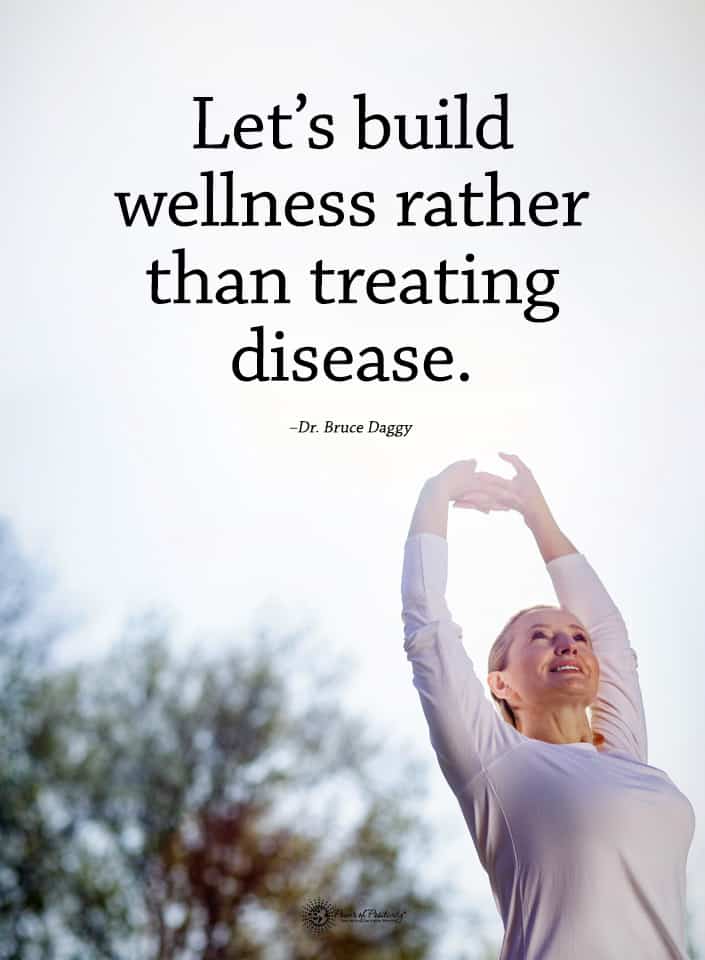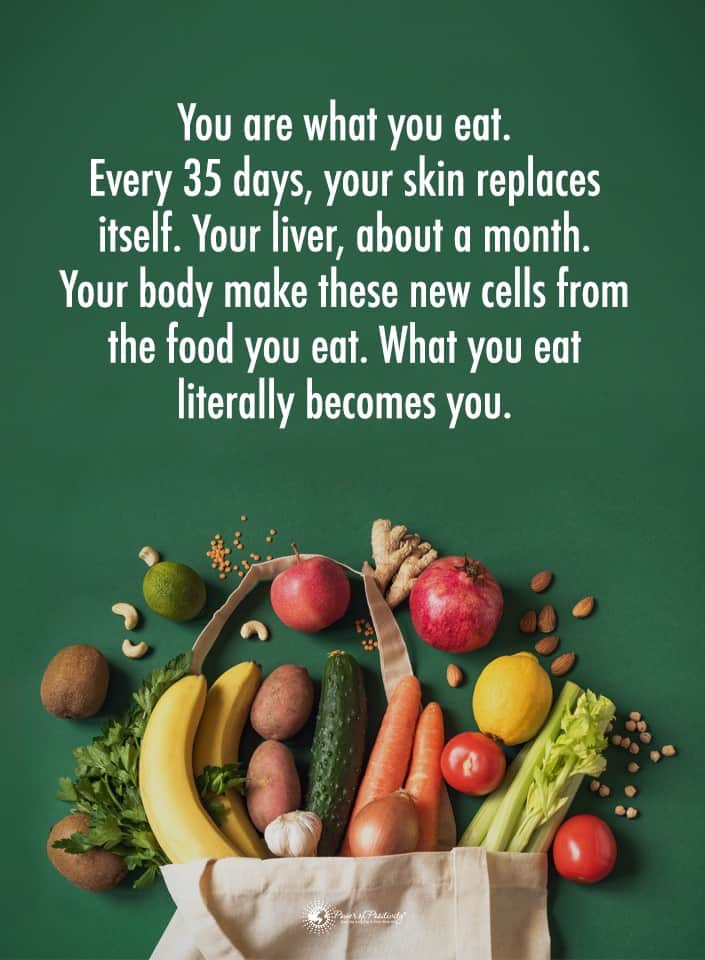You must change your lifestyle to lose weight permanently. There’s no magic cure until you commit.
The rampant spread of diet culture, fad diets, and the glamorization of following strict meal plans has led to many people believing that dieting is the ideal solution to weight loss. People are thrilled and enticed by the idea of losing weight quickly by controlling what they eat. In fact, they do not seem to realize that it’s a dangerous cycle to begin.
All of the success stories and influencer endorsements can make diets and dieting products sound intriguing. These diets can help you to lose weight at first, which makes them even more attractive. But are they truly healthy? As it turns out, your diet shouldn’t be your main focus when trying to lose weight. Here are four reasons why it’s more important to change your lifestyle than your diet to lose weight.
1. Dieting Can Be Bad For You
Many people want to lose weight for the sake of their health, and that’s valid. But dieting is not the way to go! The reality is that dieting can ruin your body in many ways. Additionally, the fact that it’s not that effective for weight loss makes the entire concept even worse! This means there is no reason to choose to go on a diet over making lifestyle changes. In fact, dieting can be more harmful to you than simply not losing any weight at all. Here are some ways that dieting can harm your health:
· It Makes You Tired
When you eat less food, it’s pretty evident that you’ll lose energy in the process. Food contains precious calories your body needs to use as fuel to chug through the day. A lot of the foods commonly cut down on in diets are the most positive for energy levels. Think carbs. Low-carbohydrate diets are trendy, but they’ll make you tired. Worse still, that fatigue will make it difficult for you to exercise and enact healthy lifestyle changes!
· It Deprives You Of Important Nutrients
Cutting out certain food groups for a diet or simply reducing consumption of different nutrients can deprive your body of the components it needs for its functions. Fats, carbohydrates, and other food groups that get a bad reputation among dieters are crucial to your health. That’s not even considering the individual vitamins and minerals that you may not get enough of when you control your diets, such as B vitamins, fiber, potassium, and more. And on the flip side, eating too much of a certain food group to make up for the ones you lack can be harmful, too. For example, an excess of protein can be bad for your kidneys!
· It Harms Mental Health
A sudden drop in consumption can cause strain on your psychological state, draining your positive thinking. It can also open you up to the risk of developing disordered eating habits and dangerous eating disorders. No amount of weight loss in the world could make an eating disorder worth it, so if you notice signs of negative eating patterns stemming from mental health issues, you should speak to a doctor for assistance.
2. Weight Loss Has To Be Sustainable
Losing weight is easy, but keeping it off is much more difficult. This is why so many studies show that lifestyle is the most central piece in the positive long-term maintenance of healthy weight. It would be best if you were committed to a lifelong weight management endeavor, and diets don’t provide the ability to do that at all. Here’s how diets trip up a sustainable weight management solution:
· Dieting Worsens Metabolism
Your metabolic rate determines how much fuel your body burns. The faster your metabolism, the better your body will manage its intake and burn off the food you eat. In other words, having a fast metabolism will let you eat more food without gaining weight, and it’s a helpful part of weight loss. But your body is designed for survival, which means that it will not improve its metabolism unless it feels that it is safe to do so. When you go on a diet, your body recognizes that it isn’t getting enough calories and begins slowing down your metabolic rate to preserve fuel for survival. If you want to lose weight long-term, working on improving your metabolism through lifestyle is far more sustainable than dieting for fast results that slow your metabolic rate, according to studies.
· Dieting Makes You Hungry
When you don’t eat enough for your body, it’s only natural that your body will go into red alert, informing you that it needs to eat. This means that diets are tough to sustain, thanks to the heightened hunger. The longer you try to draw out a diet, the more likely you are to snap and give in to very unhealthy cravings that undo any weight loss you’ve experienced. You need to lose weight without triggering those massive hunger levels if you want it to be sustainable; the human mind and body can only deny their needs for so long!
· You’ll Regain The Weight
Even if it’s impressive, any weight lost during a diet will be regained once you stop following the diet plan. Your body has had to adapt to the new restricted calories and has entered a “starvation” mode to store fat. When you begin eating normally again, your body won’t be ready enough to keep up with everything you consume! Few can deny that drastically changing your eating habits can aid weight loss, but how long can you restrict a specific food group from your meal plans? How long can you have that large of a calorie deficit? At some point, these habits can become hard to sustain, which will cause you to regain weight – often until you’ve gained more than you’ve lost overall!
3. Dieting Doesn’t Make You Lose Weight In The Way You Think
Here’s the kicker of why you should prioritize a lifestyle change over a diet – dieting won’t help you lose weight! At least, not in any way that matters! This means that dieting is almost entirely useless when it comes to making headway in your fat-burning efforts.
Here is why:
· You Get Dehydrated
Many people who start a diet may be pleasantly surprised when they see that they look “slimmer” quickly and shed quite a few pounds at a fast rate at the beginning of their diet. But this is not actual weight loss – it is the loss of water weight. You become dehydrated, and the puffiness in your body recedes, which makes you look slimmer and weigh less. However, your body’s fat content remains the same, and water weight is regained very quickly and easily – and, of course, dehydration is terrible for your health.
· You Lose Muscle
Notice the pounds falling off the scale when you start a diet? Well, you might not be losing fat. Instead, that weight could be lost from your overall muscle mass. Restricting your calorie intake can significantly reduce muscle mass, causing you to see changes in the number of the scale, even though you look the same, begin storing fat for survival, and feel much weaker.
· Superfoods Don’t Push Weight Loss
A lot of diets involve recommendations of “superfoods” that provide tons of nutrients. But while those foods are healthy and positive for you, they also don’t help you lose weight at all. Just because something is healthy, that doesn’t mean that it’ll make you lose fat, and throwing superfoods on top of a poor lifestyle won’t do anything to your benefit.
4. Lifestyle Changes Easily Allow Long-Term Weight Loss
Lifestyle changes are indeed the best way to achieve weight loss. That’s because they involve transforming your life to better fit a healthy, sustainable pattern. Altering your habits permanently is slower. However, it is more effective when compared to simply changing how you eat for a few weeks or months.
Better yet, tons of lifestyle changes have been found to help weight loss from a scientific standpoint – even if those changes are minimal! Making these changes can happen slowly and in a non-threatening fashion. So you can do them one at a time and get accustomed to each one in the long run. Here are some lifestyle changes that can help with weight loss in a better, more effective way than a diet:
· Incorporate Exercise Into Your Life
Modern-day office jobs are terrible for physical activity, which is why learning to incorporate simple exercise into your everyday life can be significant. The Center for Disease Control and Prevention (CDC), recommends that you get 150 minutes of moderate exercise weekly. However, it is also true that a bit of exercise is better than none and can have surprising results.
Here are four easy ways to add activity to your day:
- Walk for five minutes once an hour.
- Take the stairs instead of the elevator
- Take daily walks to relax
- Get up and stretch often.
All these small minor changes can add up!
· Get Enough Sleep
Sleeping well ensures that you feel energized enough to tackle the day, preventing cravings or desires for unhealthy snacks. When you feel well-rested, you don’t reach for accessible sources of calories like sweets and junk food nearly as much, and it’ll also leave you with enough energy to make your food and choose your options wisely. Remember, a healthy, long-term, sustainable diet is good for weight loss. Although often, changing lifestyle habits creates healthier diets without you even trying!
· Change Your Mindset
Find intrinsic motivation for weight loss based on your health and happiness, not how others view you. Understand the wonders of your body and stop thinking of food as the enemy. Seek to love, cherish, and nourish the functions of your brain and body instead of depriving them of what they want. You’ll find that you’ll have a better shot at losing weight when you lead with positive thinking and lose the food obsession. It’s incredible how much of a mental game it is!
Final Thoughts On How Changing Your Lifestyle Can Help You Lose Weight
So you need a balance of healthy lifestyle habits and a good diet for weight loss. But when you begin with a healthy lifestyle, the healthy diet will follow naturally without the need for fad dieting or calorie deprivation. Making long-term positive changes to your habits is the way to go!

















 Community
Community

